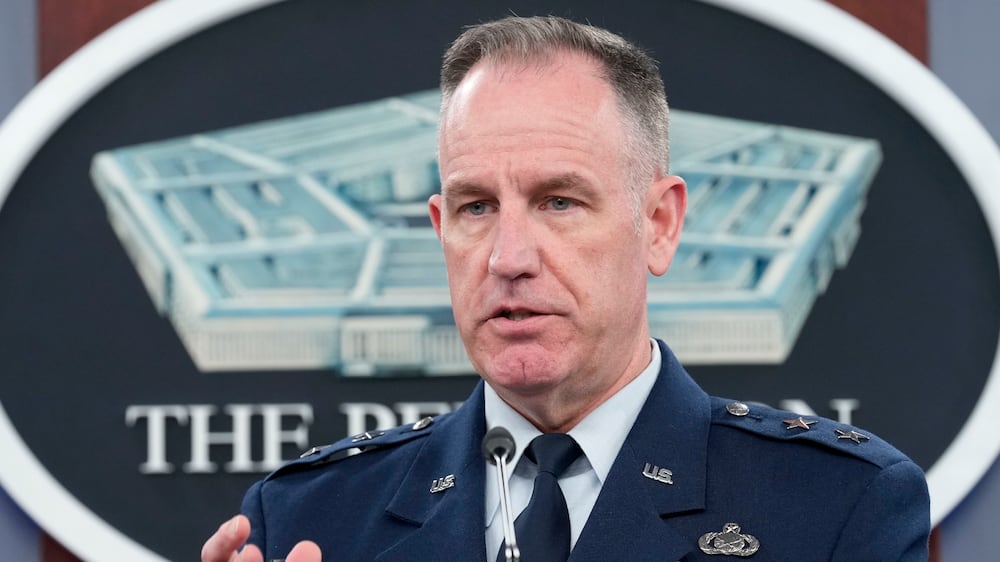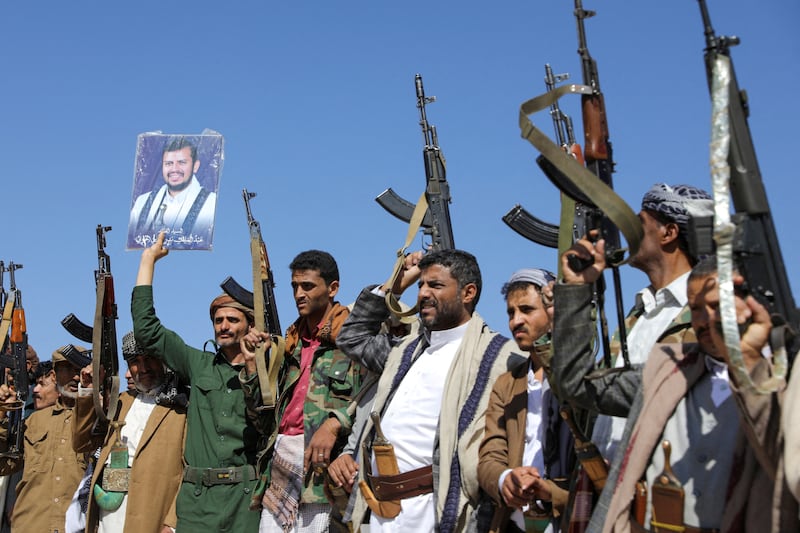The UN special envoy for Yemen voiced concerns on Monday over escalating tension in the country, warning the peace process is at risk of becoming “collateral damage” amid wider regional conflict.
“If we leave Yemen’s political process in the waiting room … the consequences could be catastrophic, not only for Yemen, but also for the wider region,” Hans Grundberg told the UN Security Council in New York.
He added that it was a “particularly dangerous moment in the Middle East”.
Mr Grundberg, who has been mediating efforts to secure a lasting ceasefire between the Houthis and the internationally recognised government and initiate a political process, cautioned that the absence of a ceasefire in Gaza and the continuation of hostilities in the Red Sea and Gulf of Aden heighten the risk of further escalation.
Yemen's Iran-backed Houthis have unleashed dozens of attacks against international shipping in the Red Sea since the Israel-Gaza war started in October, claiming they are acting in solidarity with Palestinians.
The US and Britain have been launching strikes since January on Houthi targets in Yemen in response to the attacks, but have failed to stop the rebel group.
The special envoy emphasised the critical nature of recent tension between Iran and Israel, calling for regional co-operation and international support to foster coexistence “based on incremental trust-building, mutual security, and a departure from the zero-sum mentality of achieving victory at the expense of others”.
US believes Houthis may have 'bitten off more than they can chew' with Red Sea attacks – video
US believes Houthis may have 'bitten off more than they can chew' with Red Sea attacks

On Saturday Iran launched more than 300 missiles and drones at Israel in retaliation for a strike on its embassy compound in Syria on April 1, which killed two top Islamic Revolutionary Guard Corps commanders.
The attack followed months of clashes between Israel and Tehran's regional allies since the war in Gaza began.
The US deputy ambassador to the UN Robert Wood insisted on continuing efforts to demand the Houthis cease their attacks on commercial vessels in the Red Sea.
The US Special Envoy for Yemen Tim Lenderking travelled to Saudi Arabia and Oman earlier this month to continue Washington's intensive diplomatic efforts to halt the attacks in the vital shipping corridor.
Mr Wood underscored the council’s concern regarding the Iranian origin of weapons used by the Houthis and the “continuing violations” of the arms embargo, which is facilitating “reckless attacks”.
He also urged the council to strongly condemn Iran’s “continuous efforts to foment instability and terror in the region”.






